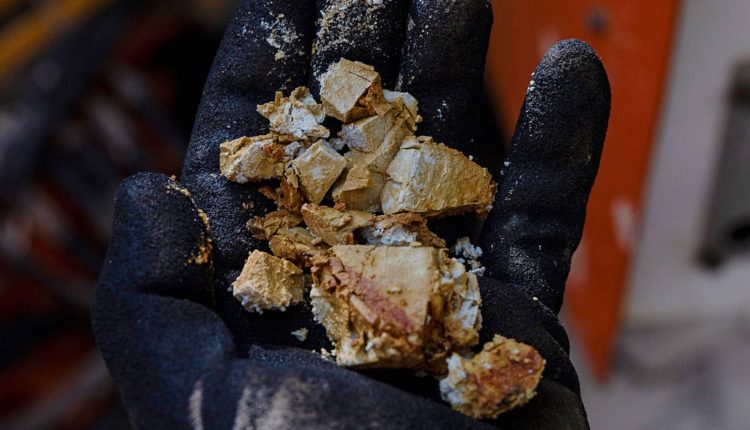Shares of U.S.-listed companies involved in the rare earths supply chain rose on Monday as investors continued to weigh the impact of Chinese export restrictions on domestic producers.
Rare earths are minerals that are essential to many aspects of modern life, particularly the technology sector and the energy transition, as they are used in everything from semiconductors to fighter jets to electric vehicle engines.
Prime Minister Donald Trump and Australian Prime Minister Anthony Albanese signed an agreement on Monday to invest in joint ventures to maintain a critical supply chain for minerals and rare earths that is not dependent on China.
U.S. Treasury Secretary Scott Bessent told CNBC in an exclusive interview last week that the Trump administration would set price floors for a range of industries, including rare earths, to counter market manipulation by China. Shares of rare earths and critical minerals mining companies have risen in recent sessions as investors consider which companies could be future targets of the government’s industrial policy.
NioCorp With an increase of almost 20%, it led the sector’s gains. Energy fuels rose by around 7% USA rare earths rose by almost 14% and Perpetua resources advanced by more than 7%. MP materials was also in the green and rose by more than 2%. Canada Lithium America increased by almost 3%
The moves come as the Trump administration works to build its own domestic supply chain for rare earths. The Defense Department struck a deal in July with MP Materials, the largest U.S. rare earth mining company, that included an equity investment, a price floor and an offtake agreement.
Investors expect the government to support more miners. William Blair initiated coverage of USA Rare Earth on Monday with an outperform rating, anticipating that the Trump administration “could soon take a significant stake in the company.”
Michael Silver, the CEO and chairman of rare earths trader American Elements, told CNBC’s “Squawk Box” last week that the U.S. has enough heavy rare metals for its military applications, but the supply chain bottleneck could impact electric vehicles, lasers and “quite a lot of commercial technologies.”
Getting mines up and running “should be treated as a national priority,” Silver said, adding that there would likely be government involvement and subsidies.
Under new rules announced earlier this month, foreign companies will now need permission from Beijing to export rare earths and must declare what they are used for.
—CNBC’s Spencer Kimball contributed to this report.


Comments are closed, but trackbacks and pingbacks are open.